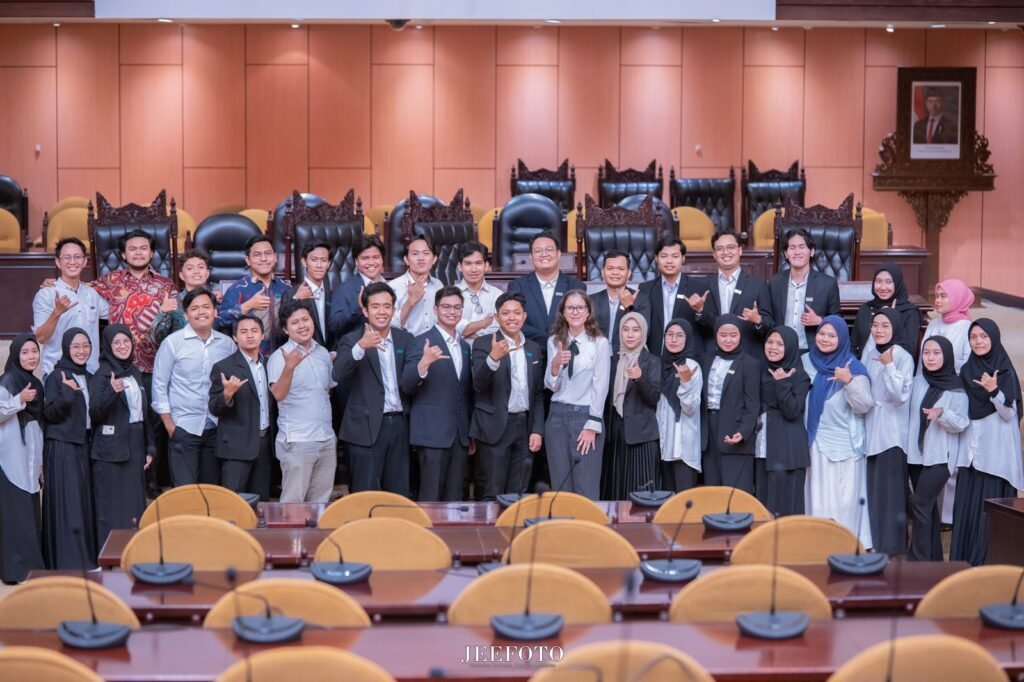
By Endang Susanti & Siti Rohwati, International Student Research and Studies Institute
In the contemporary global order, the Islamic world is at a historic crossroads. Facing the dual challenge of preserving authentic religious values while embracing the realities of globalization, Muslim societies are pressed to find innovative models of governance, cooperation, and development. Indonesia, with its unique historical trajectory and demographic weight as the world’s largest Muslim-majority nation, is strategically positioned to propose such a model. One significant manifestation of this aspiration is the Islamic World Development Network (IWDN)—a platform that demonstrates how Islamic principles, Indonesian values, and modernity can converge to create a coherent, future-oriented vision for the Muslim world.
The establishment of IWDN should not be seen merely as another institutional experiment. Rather, it represents the evolution of Indonesia’s historical mission as a bridge-builder within the Global South. Since the Bandung Conference of 1955, Indonesia has consistently played a catalytic role in connecting Asia and Africa, the Islamic world, and the broader non-aligned movement. In this sense, IWDN embodies both continuity and renewal: continuity in its diplomatic tradition, and renewal in its strategic framing that aligns with 21st-century challenges such as digital transformation, sustainable development, and South-South economic cooperation.
At its core, IWDN reflects the convergence of three dimensions. First, Islamic values, rooted in the principles of justice (‘adl), collective welfare (maslahah), and consultation (shura), which provide ethical guidance for governance and international cooperation. Second, Indonesian values, particularly the spirit of gotong royong (mutual cooperation), pluralism, and sovereignty, which have long shaped Indonesia’s domestic and foreign policy identity. Third, modernity, represented not as a blind imitation of Western models, but as an adaptive, innovative engagement with science, technology, and global interconnectivity. Together, these three pillars allow IWDN to serve as a hybrid model of leadership—neither purely traditional nor uncritically modern, but authentically contextualized for the needs of the Muslim world today.
The relevance of such a model cannot be overstated. Many Muslim-majority countries face the dilemma of navigating modernization without alienating their religious foundations or undermining their cultural integrity. Too often, modernization is equated with secularization, creating unnecessary tensions between faith and progress. Indonesia’s experience, however, shows that Islam and modernity are not mutually exclusive. The country’s democratic evolution, economic resilience, and social pluralism offer a living example of how Islamic ethics can coexist with technological advancement, market participation, and international diplomacy. By institutionalizing these lessons through IWDN, Indonesia extends its domestic achievements to the global stage.
Furthermore, IWDN aspires to address the pressing structural inequalities faced by the Global South. In an era dominated by multipolar competition, particularly between the United States, China, and Russia, the Islamic world risks being marginalized unless it builds its own collective platforms. By linking Islamic countries with Africa, Asia, and BRICS+, IWDN repositions the Muslim world as an active agent rather than a passive recipient of global geopolitics. This strategic reorientation not only enhances bargaining power in trade, investment, and technology transfer but also reinforces the ethical dimension of international cooperation—one that prioritizes human dignity over sheer power politics.
The academic community has a crucial role to play in this transformation. IWDN’s connection with universities and research centers across Indonesia and the broader Islamic world allows it to generate strategic insights, policy recommendations, and intellectual capital. Such integration of scholarship with practice is vital for ensuring that development is not reduced to economic metrics alone, but also addresses cultural sustainability, religious authenticity, and social justice. In this way, IWDN embodies a holistic understanding of development that resonates deeply with both Islamic philosophy and contemporary global norms such as the Sustainable Development Goals (SDGs).
Equally important is the youth dimension of IWDN. By engaging young Muslim leaders, students, and professionals, the network ensures intergenerational continuity. The future of the Islamic world cannot depend solely on established political elites; it must be nurtured through the creativity, energy, and global consciousness of its younger generation. Indonesia’s demographic advantage as a youthful nation amplifies this agenda, making IWDN a vehicle not only for policy dialogue but also for leadership incubation.
Ultimately, IWDN is more than an organization—it is a proof of concept. It demonstrates that the supposed dichotomies between Islam and modernity, or between national identity and global responsibility, can be transcended through visionary leadership. By integrating the ethical wisdom of Islam, the cooperative ethos of Indonesia, and the adaptive tools of modernity, IWDN offers a blueprint for how Muslim societies can thrive in the 21st century without losing their soul.
For the global community, this initiative signals a new chapter in South-South cooperation. For the Islamic world, it represents a pathway toward unity without uniformity, and progress without alienation. For Indonesia, it is a reaffirmation of its destiny as a bridge-nation, a connector of civilizations, and a leader within the Muslim world. In short, IWDN is not merely an Indonesian initiative; it is a universal project that speaks to the aspirations of Muslims and the broader Global South alike.